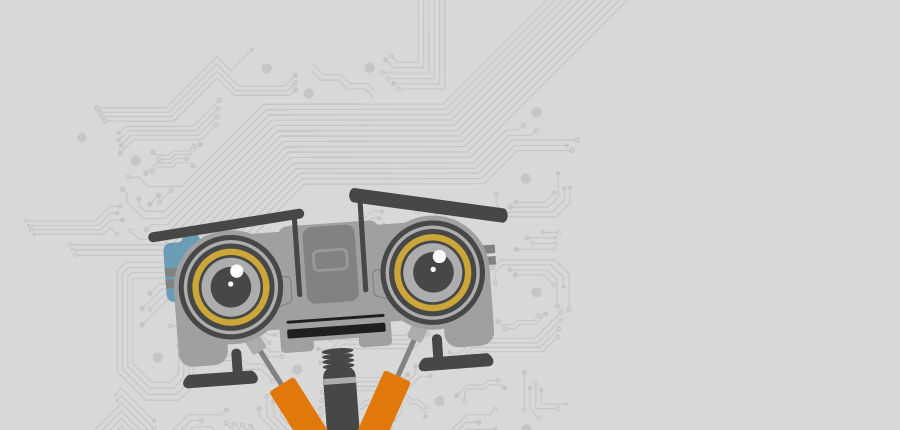

ARE WE ALREADY TAKING AI FOR GRANTED?
Reading TimeWHAT’S IT GOT TO DO WITH LASAGNE, AND WHY SHOULD WE CARE?
ARE WE ALREADY TAKING AI FOR GRANTED?
With the release of Google’s Clips camera, it would seem that technology equipped with AI is rapidly becoming part of our lives, whether we’re aware of it or not. So, like me you might be thinking “what’s all the fuss about?” Perhaps we don’t know enough about Artificial Intelligence, are simply unaware of how it can benefit us or how it may already be benefiting us. Could we already be taking AI for granted?
You may not necessarily realise it (I know I didn’t until recently) but it’s likely that AI is already a part of your life and could even be making a modest but, by no means insignificant impact. For example, if you subscribe to Spotify or Netflix, did you know AI is used to help discover and suggest new artists, playlists, shows and films based on the way you use their services? Also, if you’ve been catching up with the outstanding new BBC Drama Doctor Foster, there’s a good chance you’ve used the iPlayer once or twice. If so, you may have had to ‘sign in’ and noticed a change in what you see? This is because the iPlayer too now uses AI to help you find the best BBC programmes to suit your viewing habits and preferences.
I’ll be honest with you, I’m not up to speed with all the latest advances in AI technology, but I am still feeling inspired by the recent opportunity b1 were given to learn more about AI at Twitter’s London HQ. It was certainly extremely informative and, after doing a little more research, I’ve been thinking; rather than delve into the philosophy, pros, cons, concerns and implications of AI, wouldn’t it be better to try and understand a little more about it and how it works? This better understanding could then help decide how much of my life I might be comfortable for AI to play a part in, and perhaps a better understanding might help inform you too. Bear with me whilst I check my notes…
SO, WHAT’S AI GOT TO DO WITH LASAGNE?
Amongst the outstanding display of knowledge, expertise and complicated science on display at Twitter HQ last week, I learned something very important: Artificial Intelligence of any kind would not, and cannot, function without the input only we can provide. So, in order to understand how AI works a little better, it’s important to try and understand how the input (or data) is used. And here’s the thing, it’s not actually as complicated as you might think. Once you have enough data, you just have to decide what your AI is supposed to do with it. In other words, if you can think of a problem that needs solving and can understand what information is needed to solve it, then it’s likely that an AI system could offer a solution.

What comes to mind when you hear the word algorithm? Do you imagine impossible calculations and equations that can only be dealt with by men and women with in labs, wearing white coats? Or perhaps your brain instantly switches off and resets to its default setting of thinking about the top ten kitten videos the internet has to offer? If it’s the latter then I’ll try and get to my point as swiftly as I can.
Merriam-Webster defines the word Algorithm as a procedure for solving a mathematical problem (as of finding the greatest common divisor) in a finite number of steps that frequently involves repetition of an operation; broadly: a step-by-step procedure for solving a problem or accomplishing some end especially by a computer.
They elaborate to say that, although the current term is used to describe a problem-solving procedure which a machine (especially a computer) may use to follow a set of rules to achieve a particular goal, it is more commonly being used to describe the steps needed to complete a particular task.
So, in essence, an algorithm can be a recipe for the best lasagne you’ll ever make, the rules that keep your next flight out of danger, and how your search engine of choice can supply you with all the kitten videos the internet has to offer.
I’m certain b1 will welcome the opportunity to work with an AI collaborator with open arms!
WHY SHOULD WE CARE?

It’s likely you’ve heard the phrase a problem shared is a problem halved before. Well, instead of thinking of something emotional and the bottle (or bottles) of wine you may need to share with a friend to get through it, imagine the problem as a process you need to follow step by step to achieve a certain result, or set of results. For example, this could be repairing something mechanical, or it could be learning to ski, but it’s certainly hard to imagine attempting either of these things, or anything new or unfamiliar, without the guidance and assistance of someone qualified.
When it comes to being successful at anything there’s no secret ingredient. You start with an idea, then you have to learn, practice and basically work hard to perfect what you set out to achieve. The same can be said for running a business and, although a little (or a shed load) of investment can help success arrive sooner, most often the results of any business can be a direct reflection of the way it operates.
That brings me to my point and what I find the most intriguing about the potential benefits of AI. Whether you want to start maintaining your car yourself, perfect that lasagne recipe, or design the next social media app no one can live without, imagine if you could share the process with a system that could help you understand all the information, make decisions, suggest solutions and save you time. That would be awesome, right?
Like any business, we have internal procedures at b1 to help manage what we do on a daily basis but, as an integrated agency, our approach to the creative process is as unique as our clients and their products, and can vary from one project to the next. The creative process is notoriously cyclical in nature, inherently iterative, and sometimes with an indeterminate beginning or end. This makes the thought of refining and condensing it down to a particular set of rules and calculations seem fairly challenging and is just one of a number of reasons why it’s unlikely AI will be rendering us obsolete any time soon.

However, the potential benefits of using AI to help make certain elements of the process (i.e. market, industry or historical analysis) faster and more efficient are astounding. We already work together to share our collective knowledge and experience, which is why we’re able to help our clients get what they need. So, I’m certain b1 will welcome the opportunity to work with an AI collaborator with open arms!
So, until AI becomes an immovable part of our industry that we must teach to remain not only competitive but relevant, perhaps we can learn from the way AI works and start perfecting our own algorithms. I know when I get the chance to work with AI, I’ll do my best to share my experience to help it learn, understand, and explore the creative process – just as I would a Junior fresh to the industry.
How would you like AI to enhance your life, and given the choice what processes would you teach it and trust it to complete for you?
– Russ, Senior Designer.